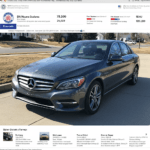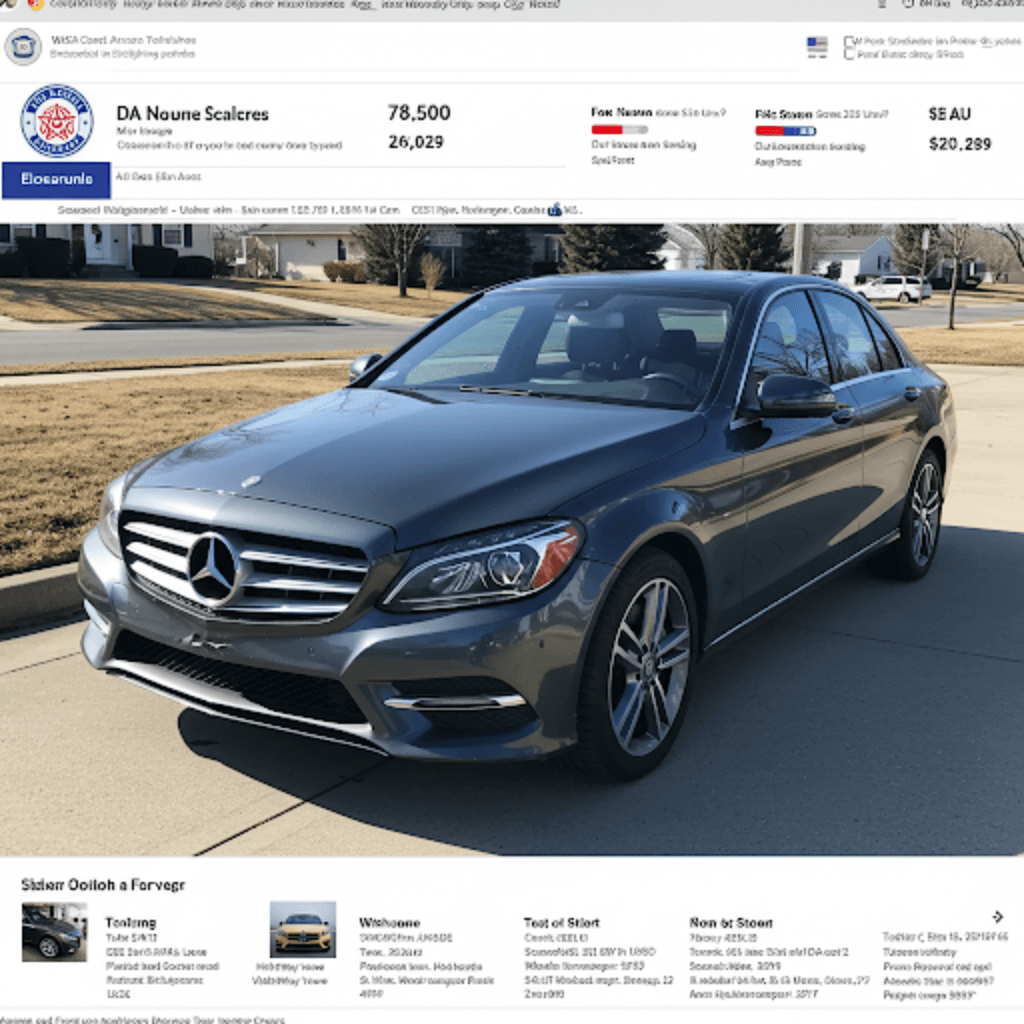
Used Mercedes-Benz: A guide to luxury, performance, and value
The three-pointed star of Mercedes-Benz represents a legacy of automotive excellence, innovation, and luxury. Buying a used Mercedes-Benz can be an intelligent way to experience this prestige without the significant depreciation that comes with a new car. However, navigating the used Mercedes market requires careful consideration and research. This comprehensive guide will walk you through everything you need to know before buying a used Mercedes-Benz, ensuring you make a smart and satisfying purchase.
Why choose a used Mercedes-Benz?
Several compelling reasons make a used Mercedes-Benz an attractive option:
- Depreciation advantage: New cars depreciate rapidly, especially luxury vehicles. Buying used allows you to bypass the steepest part of the depreciation curve, getting significantly more car for your money.
- Access to higher-tier models: A used Mercedes-Benz can put models that were previously out of reach financially within your grasp. You might be able to afford a higher-trim level or a more powerful engine for the same price as a new, less-equipped car from a different brand.
- Proven technology and engineering: Mercedes-Benz has a long history of engineering innovation. Even older models often feature advanced technology and safety features that are still relevant today.

- Extensive model range: From compact sedans like the C-Class to luxurious SUVs like the GLE and high-performance AMG models, Mercedes-Benz offers a vehicle for almost every need and preference. A used market provides an even wider selection.
- Build quality and durability: Mercedes are typically built with high-quality, their cars are very durable.
Understanding the Mercedes-Benz model lineup
Mercedes-Benz has a diverse lineup, and understanding the model designations is crucial. Here’s a simplified overview:
- A-Class: Subcompact luxury sedan and hatchback, offering an entry point to the brand.
- C-Class: Compact executive car available in sedan, coupe, and convertible body styles. A popular choice for its balance of luxury, performance, and practicality.
- E-Class: Mid-size executive car, known for its comfort, refined ride, and advanced technology. Available in sedan, coupe, convertible, and wagon body styles.
- S-Class: Full-size luxury sedan, the flagship of the Mercedes-Benz lineup, representing the pinnacle of luxury, innovation, and technology.
- CLA-Class: Four-door coupe based on the A-Class platform, offering a stylish and sporty alternative.
- CLS-Class: Four-door coupe based on the E-Class platform, prioritizing design and elegance.
- GLA-Class: Subcompact luxury crossover SUV.
- GLB-Class: Compact luxury SUV, offering more space and practicality than the GLA.
- GLC-Class: Compact luxury SUV, a popular choice for its versatility and comfort. Available in standard SUV and “coupe” body styles.
- GLE-Class: Mid-size luxury SUV, offering a spacious interior, advanced technology, and strong performance. Available in standard SUV and “coupe” body styles.
- GLS-Class: Full-size luxury SUV, the SUV equivalent of the S-Class, providing maximum space, comfort, and luxury.
- G-Class (G-Wagen): Iconic off-road SUV, known for its boxy design, rugged capability, and luxurious interior.
- AMG models: High-performance variants of many Mercedes-Benz models, tuned by AMG for enhanced power, handling, and styling. Identified by AMG badges (e.g., C 63 AMG, GLE 63 S AMG).
- Maybach models: Ultra-luxury versions of the S-Class and GLS-Class, offering even higher levels of opulence and customization.
Key factors to consider before buying
Before making a purchase, thoroughly evaluate the following:
- Your budget: Determine a realistic budget, factoring in not only the purchase price but also potential maintenance, repair, insurance, and fuel costs. Mercedes-Benz vehicles, even used ones, can have higher running costs than some other brands.
- Your needs and preferences: Consider your lifestyle, driving habits, and passenger/cargo requirements. Do you need a spacious SUV for a family, a sporty coupe for weekend drives, or a fuel-efficient sedan for commuting?
- Model year and mileage: Newer models generally have more advanced technology and safety features, but older models with lower mileage can still offer excellent value. Find a balance that suits your budget and priorities.
- Vehicle history report: Obtain a comprehensive vehicle history report (e.g., from Carfax or AutoCheck). This report will reveal crucial information, including accident history, ownership history, title status, and mileage verification. Avoid vehicles with significant accident damage, salvage titles, or odometer discrepancies.
- Pre-purchase inspection (PPI): Always have a qualified mechanic, preferably one specializing in Mercedes-Benz vehicles, perform a thorough pre-purchase inspection. This inspection can identify potential mechanical issues that may not be apparent during a test drive.
- Maintenance records: Review the vehicle’s maintenance records. Regular maintenance is crucial for the longevity and reliability of any Mercedes-Benz. Look for evidence of consistent servicing, including oil changes, fluid flushes, and scheduled maintenance items.
- Test drive:Take an extended test drive, a test drive can tell a lot. Check smoothness of gear changes, check handling of the car.
Common issues to watch out for (model-specific)
While Mercedes-Benz vehicles are generally well-built, certain models and model years have known issues. Research common problems associated with the specific model you’re considering. Here are some examples:
- Air suspension problems (various models, particularly older S-Class, E-Class, and SUVs): The airmatic suspension system can be prone to leaks and failures, leading to expensive repairs.
- Engine issues (certain engines): Some older Mercedes engines have been known for issues like oil leaks, timing chain problems, or balance shaft failures. Research the specific engine in the model you’re considering.
- Rust (certain older models, especially those in areas with harsh winters): While modern Mercedes-Benz vehicles have good rust protection, older models can be susceptible to rust, particularly in areas that use road salt.
- Electronics issues: Early electronics systems have its own problems. Be sure to test every single electronic function on older models.
Negotiating the price
Once you’ve found a suitable vehicle and completed the necessary inspections, it’s time to negotiate the price. Be prepared to walk away if the seller is unwilling to negotiate to a fair price. Use online valuation tools and comparable listings to determine a reasonable price range.
Financing and insurance
If you’re financing the purchase, shop around for the best interest rates and loan terms. Consider getting pre-approved for a loan before you start shopping. Also, obtain insurance quotes to understand the ongoing costs of ownership.
Extended warranties
Consider purchasing extended warranty. It will help you cover expensive repair cost.
Final steps
Before finalizing the purchase, carefully review all paperwork, including the sales contract, warranty information (if applicable), and financing documents. Ensure that all agreed-upon terms are accurately reflected in the paperwork. Once you’re satisfied, complete the purchase and enjoy your used Mercedes-Benz!







